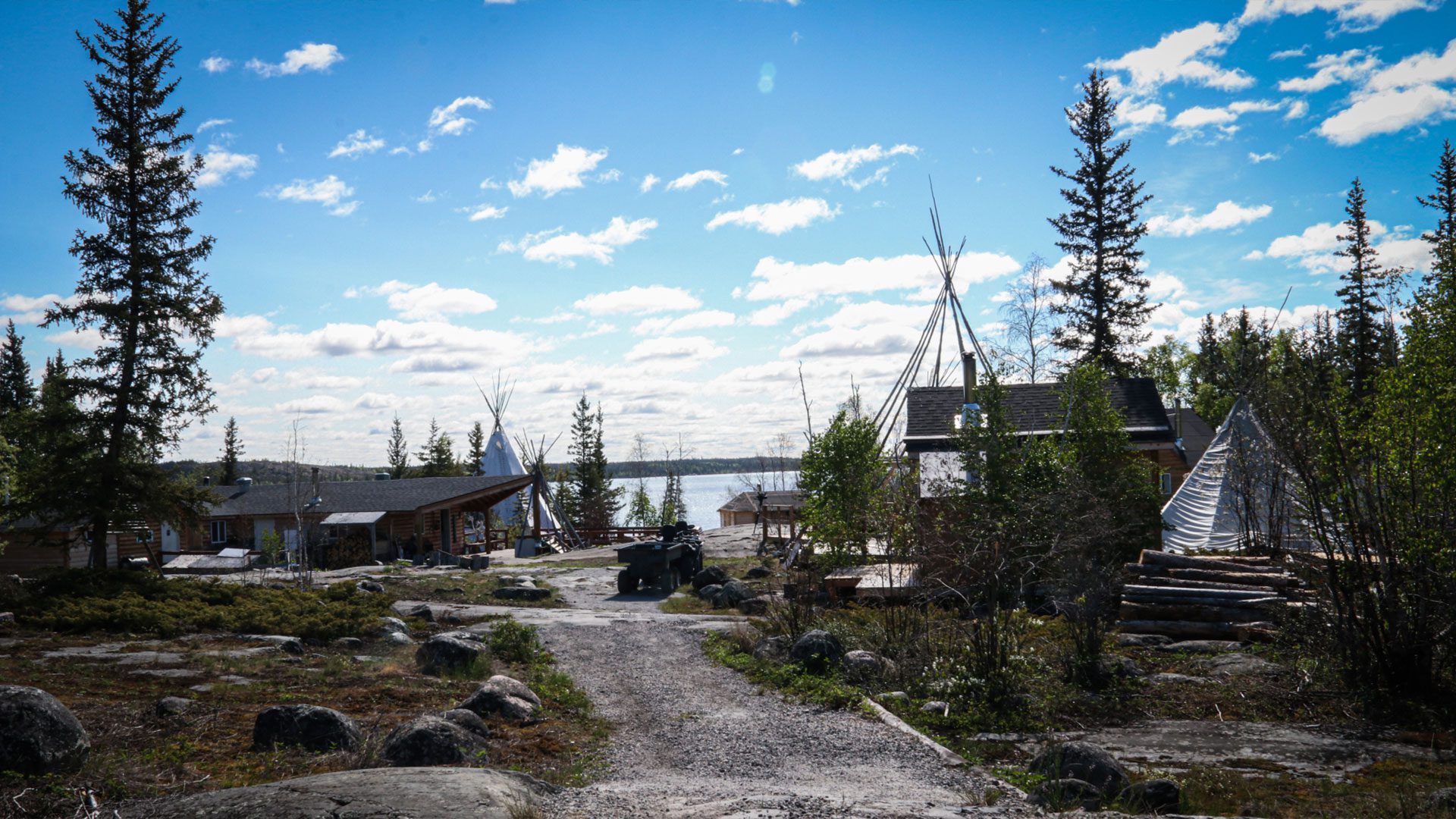Students in a northern leadership development program (NLDP) are in the final throes of school, working on team-building activities such as plucking ducks and filleting fish at an on-the-land camp in Dettah.
Aurora College’s NLDP is a part-time modular program that combines traditional and online learning to draw in students from all over the Northwest Territories who currently hold leadership positions. With a Level one and level two option, this program aims to better prepare them with the essential skills needed to excel as leaders in their fields.
Like Chief Elizabeth Wright of the Teetl’it Gwich’in band council in Fort McPherson. She said the program has helped her learn to be fully present in conversations with colleagues.
“Learning from the whole cohort, of course, everybody has a different background, and everybody has different jobs,” Wright said. “The communication module was really helpful to me to learn how to say things in a different way and noticing how I speak, my facial expression, my body.”
But some programs, could be in jeopardy due to Aurora College’s decision to delay its transition to a polytechnic university, a process that started in 2017 and included a planned unveiling ceremony in May 2025.
The Social Work Diploma and Bachelor of Education have already been cut for the time being.
According to the college, 60 percent of its funding comes from the territorial government and 40 from third party and research money.
A transformation would shift the financial make up to see more research and third-party funding making up a larger percentage of the overall budget.
Glenda Vardy Dell, president of the college, said that despite not reaching significant goals, they are currently prioritizing the recruitment of full-time grant writers to fill the gaps identifying funding opportunities.
“Colleges and universities have always been asked to apply for third-party funding, but the issue we run into at Aurora College is with the Polytechnic University coming into the forefront, for us we need programs-based funding,” Vardy Dell said. “We want to be able to say to a student who is unsuccessful in a course, ‘come back next year to redo this course,’ but if we don’t have third-party funding and base funding to say that course will be offered again next year then we may potentially lose that student.”
Third party funding is typically time-limited, base funding is an ongoing commitment from the GNWT.
Indigenous students doing ‘amazing things’

The majority of the 10-month course is conducted online, except for three face-to-face gatherings in Yellowknife. All the participants have full-time jobs and are given time by their employers each month to attend the three-day modules. Participants are encouraged to include their mentors in the last gathering.
Charlie Villeneuve, originally from Inuvik, holds a supervisory position at Ekati diamond and opted to have his grandmother as his mentor.
“The strength, leadership, where I get a lot of my qualities from, I can see in her and so many others,” Villeneuve said. “I’ve been fortunate enough to recognize leaders I’ve encountered in my life.”
Hilary LeRoy-Gauthier, a program facilitator, has been involved with the program since its inception in 2011. She mentioned that the program stands out because the students’ employers are required to provide support by covering tuition costs and granting time off.
“Our Indigenous participants that are involved here are doing amazing things in their communities and need to be supported in their own leadership development to continue to do that amazing work,” LeRoy-Gauthier said. “The focus is far more on that collaborative discussion-based case studies of what people are finding in their workplaces and in their communities.”
Since 2011, more than 150 students from the north have been awarded a record of achievement through the program.
All students in this group have completed level one previously, although it is not required. Level two focuses on using the skills and ideas learned in level one.
Cheryl Martin from Yellowknives Dene First Nation expressed that she is finishing her studies feeling self-assured.
“I’m a quiet person, but it’ the reason I took this program, to work on me, speaking out, because this program really helped about team building, trusting, um, better communications, decision-making and problem solving,” Martin said.
Working in finance for the territorial government, she views the program as a crucial tool for increasing Indigenous representation in senior positions.
“I like seeing more Aboriginals in the program, because it’s a good advancement piece for them to go in leadership roles,” she said.
Vardy Dell highlighted the additional obstacles students face in northern regions, such as high living costs and limited housing options. She mentioned ongoing discussions within the college to address these issues and enhance the overall student experience by offering more on-campus housing for students and their families.










